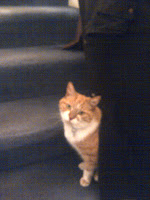Where do you sit for Die Walküre? In the Gods, of course. And the single best thing about going to Wagner? No queue in the Ladies' Room. Though apparently there was a massive queue in the Gents. Now they know what it's like for us at almost everything else.
I managed, with the help of an eagle-eyed and quick-moused pal, to get a last-minute return for the Wagner at Covent Garden last night. Amid all our yadda yesterday about dressing-down, seat prices et al, I can report that a) the amphitheatre of the Royal Opera House was very dressed-down indeed - Wagner is a long haul flight and you need to go for comfort rather than style; b) the rest of the audience didn't look excessively flash either; and c) you can see nearly six hours of opera with a world-beating cast like this one, a clear view of the complete stage and an excellent take on the house acoustic, for £61. I don't think that is overpriced, under the circumstances. Most people I spoke to had booked a year in advance. Everyone up there was a total Wagner nut, and the hush and stillness through the performance was something to marvel at.
Highlights of the evening appeared in unusual places. First of all, Sarah Connolly's Fricka: a nuanced, heart-rending, ruby-toned performance, exceptionally sophisticated and classy. Another call for someone, please, to award a recording contract, scandalously absent at present. Come on, people - Connolly is a national treasure. She's on disc. But not enough.
This, too, was the production's one real masterstroke: the tortured relationship between her and Bryn Terfel's Wotan is the heart of the story. Often Fricka is portrayed as little more than a backroom bully, a fundamental ideologist forcing Wotan's hand over a point of malign principle (it's a common enough problem) and you always wonder why he's weak enough to cave in (a common enough problem too). Here, though, there is still a great love between this long-married couple, on both sides. Connolly made you feel every twist of Fricka's shredded heart as the faithless Wotan cradles her with tremendous tenderness. Wotan lets her win because his love for her ultimately overrides his other amours. It makes sense out of the whole story.
It was more or less the only sense we got out of Keith Warner's production, which I have not attended before. It's cluttered, fussy and occasionally worrying: there's a distinct tendency for characters to trip over the red rope that is doing goodness knows what across the stage, and over the metal thingummyjig that rears up in the middle of the set, and then there's the ladder, from which Susan Bullock apparently had to be unhooked by a stage-hand on the first night - and will something elsewhere in the cycle make sense of the three-pronged fan under which Brunnhilde falls asleep? What's it for - repelling mosquitoes? On the top of a mountain? Most of the action appears to take place in a disused storeroom or perhaps a very messy study (a bit like mine) with a black office table, a leather chaise-longue and a huge heap of discarded books. I was constantly alarmed in case someone decided to do a Nazi-reference thing by setting light to it, though fortunately they didn't. If you're going to offer a concept Walküre, then clarity of that concept helps. This one, if it exists, eludes me. And according to Fiona Maddocks, the production has actually been streamlined since last time.
The other unforgettable performance
was Sir John Tomlinson's Hunding, who could dominate the stage with his first swing of the axe and the auditorium with his first note and all thereafter. A
marvellous moment when he and Terfel's Wotan come face to face - these two legends together are not something you see every
day. Marvels too from Terfel himself, of course, a Wotan incarnate; and Eva-Maria Westbroek as Sieglinde, creamy-toned, all-giving and ultimately transcendental as she blesses Brunnhilde. As the latter, a feisty Susan Bullock, tiny and ferocious. Simon O'Neill as Siegmund started strong, but threatened to fade out as Act 1 wrestled him and nearly won. Luxury singing from the Valkyrie gang and, below, Tony Pappano presided over a rich-toned and rhapsodic orchestra augmented by six harps plucking away in the stalls circle.
At the risk of sounding heretical, though, I'm not convinced Wagner is Pappano's finest six hours. He has become incomparable in Italian repertoire - Il Trittico a year ago was one of the greatest evenings I've ever had in the ROH, and I mean it. But this was rather gentle Wagner: an interpretation that roused and glowed but didn't transfigure. It needs an extra hard-edge of ecstasy that simply wasn't there, despite the glories of the singing.
Let's face it: we go to Wagner to get high. That's why people get addicted. And if you don't get the high, something isn't quite working. And the place it needs to be generated is in the pit. It's legal. But it shouldn't necessarily sound it.
